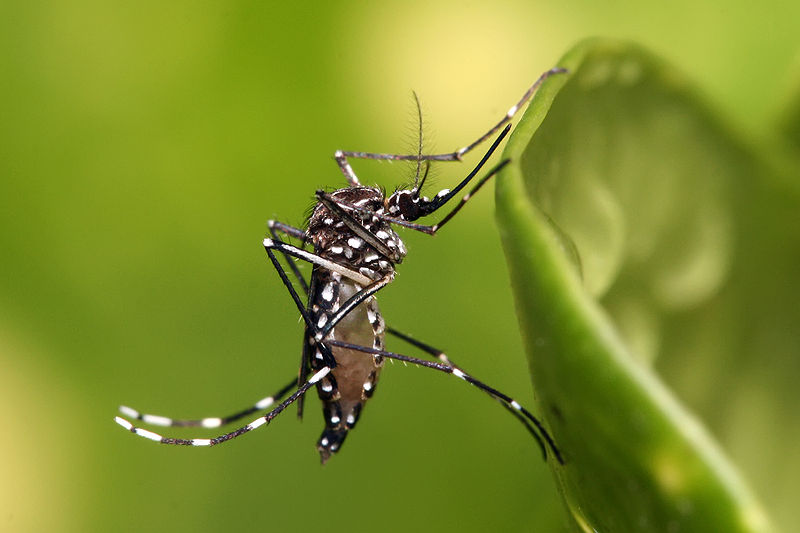Genetically modified mosquitoes may soon be released in Florida

In an effort to help eradicate dengue fever and the mosquitos that spread it, the Florida Keys Mosquito Control District (FKMCD) is seeking federal and state approval to release hundreds of thousands of genetically-modified (GM) mosquitos designed to kill off the natural Aedes aegypti variety of the fly throughout Key West, Florida.
The agency, which already routinely performs aerial sprayings of the area with anti-mosquito chemicals, believes it will save money in the long run by releasing the GM mosquitos. Rather than spend $400,000 or more a year to conduct the aerial sprayings, FKMCD says it would instead only have to spend $200,000 to $300,000 a year on the GM mosquitos.
Created by U.K.-based insect eradication company Oxitec, the GM mosquitos have been created with an added gene that, unless they are given the antibiotic tetracycline, will automatically kill them. When they mate with wild mosquitos, these GM mosquitos also pass on this gene to the offspring, which is intended to gradually decrease the population of wild mosquitos over time.
If approved, the release of GM mosquitos in Key West will represent the first ever release of a GM creature in the U.S., and on a trial basis where scientists really have no idea what will happen. Like all other GMOs, it is unknown whether or not the GM mosquitos will have a detrimental effect on the environment or humans, or how killing of large amounts of mosquitos will disrupt the life cycles of natural ecosystems.
Similar trials involving the release of GM mosquitos have already occurred in both the Cayman Islands and in Malaysia, according to reports. In the Cayman Islands, Oxitec secretly released the mosquitos without approval, and did not notify the public that it was conducting a massive ecological experiment that could have potentially life-altering consequences until a year after the GM mosquitos were released (http://www.naturalnews.com/030449_mosquitos_Cayman_Islands.html).
Though the vast majority of the GM mosquitos being released are male, which do not bite humans, a small percentage of them are female. So looking at the situation just from a human health perspective, what are the risks involved with a human getting bitten by a GM mosquito? Nobody really knows, as Oxitec has not conducted any long-term research on the safety of GM mosquitos interacting with other creatures or with humans.
Mosquitos, as annoying as they can be, also play a critical role in the food chain, and particularly the animal food chain. They also serve as plant and crop pollinators, without which we may not be able to grow food.
Sources for this article include:
http://www.keysnet.com
http://www.activistpost.com
http://www.keysmosquito.org
NaturalNews.com
by: Ethan A. Huff
Featured image credit: Muhammad Mahdi Karim

🙁